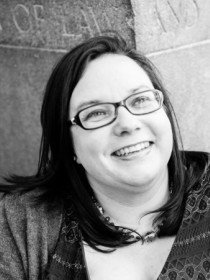
Erin Mayo-Adam
Connect with Erin
About Erin
Mayo-Adam's research focuses on Law and Society, American Politics, Political Theory, Social Movements and Interest Groups, Intersectionality, Gender and Sexuality, Race and Ethnicity, and Immigration and Labor Politics. Overarching themes include building alliances across and within rights-based minority movements to aid in struggles to overcome inequality and oppression at the grassroots level. Mayo-Adam is the Director of the LGBTQ Policy Center at Roosevelt House and is a member of the Law and Society Association and the American Political Science Association.
Contributions
How Rights Movements Can Build Coalitions Bridging Diverse Constituencies
Publications
Present findings of a survey experiment conducted using the Washington Poll in 2011. Finds that using a special rights frame dampens support amongst some respondents for lesbian and gay inclusive non-discrimination policies, and respondents who indicated that they opposed to marriage equality were less likely to support an inclusive non-discrimination policy when confronted with an equal rights frame than when confronted with a special rights frame or no frame at all.
Presents findings of a study conducted from 2014 to 2015 that involved in-depth interviews with organization leaders and advocates who helped build immigrant and lesbian, gay, bisexual and transgender rights coalitions. Argues that this intersectional coalition formation was paradoxical, simultaneously expanding political movements through the construction of a "civil rights past" identity and containing political movements by reinforcing historic social divisions based on race, gender, and class.
Challenges scholarship that argues that rights only serve a limiting role in social movement advocacy. Analyzes letters to the editor written to Gay Community News, a prominent gay liberation movement newsletter in the 1980s. Argues that rights talk can also serve as an important source of constructing community within local, non-mainstream, and non-institutional spaces.